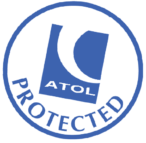Capital: San Juan
Time zone: GMT – 4
Telephone services: Country Code: 1 787
Outgoing Code: 011
Emergency telephone numbers: Police – 787 343 2020; Fire – 787 343 2330; All services – 911
Tourist information: Puerto Rico Hotel and Tourism Association; Suit 702; Plaza Centre; 954 Ponce de León Avenue; Miramar; Sancturce 00907; San Juan; Puerto Rico Tel: 725 2901 Fax 725 2913.
Passport information: Same as the USA
Visa information: Same as the USA
Health information: Polio; Typhoid: Vaccination recommended
Other Health Risks: Bilharzia and Rabies
Food & drink: Water is considered drinkable; normal precautions should be observed with food
Currency: US Dollar (US$) = 100 cents. All major credit cards accepted. US dollars are preferred for travellers cheques
All credit cards are accepted and travellers cheques are easily exchanged
ATM availability: Over 630 locations
Cost of living: Accommodates all types of travellers.
Languages: Spanish. English is widely spoken.
Weather: Hot tropical climate. The temperature varies little throughout the year. Cooler in upland areas
Electricity: 120 volts AC; 60 Hz.
Post: Up to 1 week
Transport: ROAD: TAXI: A special service called a ‘Linea’ will pick up and drop off passengers where they wish. They operate between San Juan and most towns at a fixed rate. CAR HIRE: Available at the airport and city agencies. DOCUMENTATION: An IDP is required. BUS: Services operate in the cities although usually stop at 2100.
Special information: As well as offering lavish entertainment, notably casinos and a variety of nightlife, in the interior there are anthropological sights of interest, such as a replica of a Taino Indian village, near Guayama.

